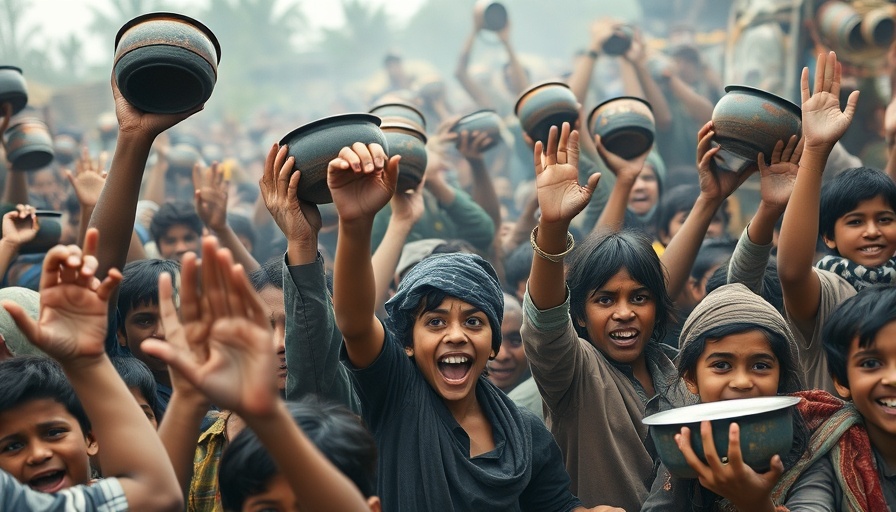
The Impact of Israel's Siege on Gaza: A Humanitarian Crisis
As the conflict in the Gaza Strip rages on, the dire humanitarian situation continues to worsen. More than 60 days have passed since Israel imposed a total blockade, which has effectively cut off all humanitarian assistance—including food, water, and medical supplies—to the inhabitants of Gaza. This blockade has been described by doctors and humanitarian organizations as 'catastrophic,' leading to increased hunger, rampant disease, and rising mortality rates among the most vulnerable populations, particularly children and the elderly.
Understanding the Consequences of the Blockade
The fallout from the blockade has been severe. Reports indicate that hospitals are running out of essential medical supplies at an alarming rate. Muneer Alboursh, director general of Gaza's health ministry, has expressed his desperation, stating that he has no solutions to offer to patients struggling with treatable conditions. 'In most cases, those patients die,' he lamented. The urgency of the situation is compounded by the absence of humanitarian aid, which critics argue is being used as leverage in political negotiations.
Human Rights and International Law: Debates Over Legality
A complex web of political and legal issues envelops the siege. While Israel claims that the blockade is a lawful measure aimed at suppressing Hamas, who it accuses of terrorism, humanitarian organizations argue that this stance overlooks the international laws designed to protect civilians during conflict. Critics assert that Israel's actions violate several treaties intended to safeguard human rights and humanitarian aid access. There is mounting pressure from international entities, including EU officials, calling for a reconsideration of these policies, indicating a desperate plea for accountability.
Parallel Examples: Historical Context of Enforced Blockades
Historically, blockades similar to the one currently implemented in Gaza have led to devastating humanitarian crises elsewhere. The situation in Yemen provides a stark reminder of how restricted access to essential goods can exacerbate anger and suffering. In both cases, the civilian populations endure extreme hardships, resulting in widespread diskfiguration of their daily lives, leading to the loss of livelihoods and despair. The question remains: can lessons learned from past crises guide us in preventing similar outcomes in the future?
The Emotional Toll: Human Stories from Gaza
Amid the statistics and political discourse, the emotional impact of the blockade can be seen through the eyes of those forced to navigate this dire situation. Cherishing their loved ones, men and women share stories of loss and desperation, painting a portrait of a society clinging to hope. Witnesses recount harrowing experiences of children succumbing to preventable diseases, while parents express guilt and frustration over their inability to secure basic supplies. The voices of the people of Gaza resound with pain and urgency, demanding that those in power do more to alleviate their suffering.
Future Implications: What Lies Ahead for Gaza?
Looking ahead, the future remains uncertain for the people of Gaza. The unending siege has raised concerns not only about immediate starvation and disease but also about long-term socio-economic collapse. The implications of such a decline could have far-reaching effects that extend beyond Gaza's borders, affecting regional stability, international relations, and global public health. Will there be a willingness among international leaders to intervene effectively, and if so, what measures can they take to mitigate the humanitarian disaster occurring unfolding before our eyes?
Conclusion: The Call for Action
The situation in Gaza underscores a pressing humanitarian crisis, highlighting the need for action to address the suffering inflicted on innocent civilians. As humanitarian groups continue to advocate for the delivery of aid and the restoration of basic human rights, the global community must respond not only with words but also with decisive actions. The lives of countless individuals depend on our collective response—will they be heard?
 Add Row
Add Row  Add
Add 




 Add Row
Add Row  Add
Add 

Write A Comment